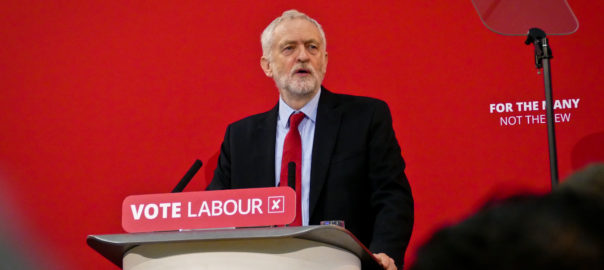Jeremy Corbyn, the leader of the British Labour party, says he wants to “do far more to give a real voice to working class communities who feel they aren’t heard in politics”. He also says the EU has weakened the British working class by enabling the “wholesale importation of underpaid workers from central Europe”. Given that Corbyn is steeped in the Bennite socialist tradition, it’s fair to assume that these sentiments are genuine. After all, working class political representation and Euroscepticism are cornerstones of Bennite ideology.[i]
Corbyn’s stance is close to the preferences of working class constituencies, particularly those in the post-industrial north of England. The EU referendum shows this. Politically, many people from this background saw this vote as an opportunity to have their voices heard after decades of being ignored by mainstream politics. And economic and cultural anxieties were major factors behind their large-scale support for Brexit.
Yet despite this apparent affinity, many within the working class don’t like Corbyn. In fact, at the last general election voters from this background swung towards the Tories. A key reason for this seems to be perception. The working class tend see Corbyn as the spokesperson for a middle class, metropolitan politics that says little for their material interests and typically more conservative values. And in a way they’re right.
Corbyn’s core support within Labour comes from party members. On the whole these are middle class, metropolitan, and emphatically pro-EU. When it comes to the broader electorate, it’s people with these characteristics – especially young university graduates – who have been most enamoured by the Labour leader. The nature of Corbyn’s social base explains why many in the working class think his party is not for them.
So Corbyn’s position is awash with contradictions. His ideological preferences align with those prominent among the working class: yet members of this stratum tend not to identify with the Labour leader. Corbyn’s ideological preferences are at odds with those held by his middle class, metropolitan base: yet when such people look at Corbyn they see someone who is firmly on their side.
Brexit, moreover, is shining a light on these contradictions. Labour members are desperate for their leader to back a second referendum on EU membership. A recent poll shows that 78% of them favour this course of action, and if such a vote did occur, 88% would back remain. So far, however, the party leadership has resisted this pressure. This is partly due to Corbyn’s sincere desire to leave the EU. But it also stems from the leadership’s fear of further working class losses. Nevertheless, it seems inevitable that one of the two groups Corbyn is trying to appeal to will end up disappointed. The question is, which one?
If past form is anything to go by, the sensible money would be on the working class. Corbyn owes his position as Labour leader almost exclusively to party members. As a result, he has acted to empower them and give them greater say over policy. This has led to a platform with a distinctly middle class-millennial hue. Take the manifesto pledge to abolish university tuition fees, or Labour’s 2018 rulebook, which prioritises representing British society “in terms of gender, race, sexual orientation, and disability”. Such positions aren’t exactly in sync with working class interests and values. And they suggest that Corbyn will ultimately bend his knee to the membership over a second referendum.
Yet the past isn’t always a useful guide; or rather, it’s knowing which bit of the past is pertinent. The big prize Corbyn is after is a majority Labour government. And his strategists appear to be thinking that backing a second referendum would put this at risk. Their view is that it may push more working class voters into the hands of the Conservatives, with the result that there will be more constituencies like Mansfield, which turned blue in 2017 after nearly a century of being red. To avoid this eventuality, it looks as if Corbyn’s advisers are taking their cue from an example set by Tony Blair and New Labour.
In the 1990s, New Labour’s strategy for winning power was to pitch for middle class votes. The party abandoned its traditional leftwing stance and moved to the centre ground. It thus moved away from its working class base. Blair thought he could do this without risking the desertion of blue collar voters on the grounds that, electorally, they had “nowhere else to go”. As I’ve discussed previously, the longer-term consequences of this were a hollowing out of Labour’s traditional support base. But as Katy Balls, a journalist, reports, the current Labour leadership seems to be engaged in a similar approach, only this time it’s the middle class metropolitans who are being taken for granted.
And this approach may work. Corbyn’s core would find voting Tory anathema, and due to Britain’s first-past-the-post and two-party systems, they couldn’t vote for any other party without returning a Conservative government – an outcome they would despise. So, on the pivotal issue of Brexit, it seems that Corbyn’s best course electorally is to disappoint his middle class, metropolitan base. This will give him a better chance of holding his political coalition together.
But whether he does this depends on what he values more highly – government power or internal party democracy. Political logic and the party’s current stance suggest the former. If that is the case, then it seems the middle class side of Labour’s coalition will lose.
[i] Geoffrey Foote, The Labour Party’s Political Thought: A History, MacMillan Press, 1997
